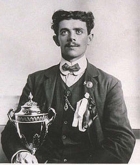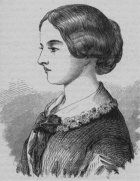Dilemmas
Over the years, the journal “Primary History” has posed a number of challenges for subject leaders to address. Many of these remain relevant in the current curriculum. They aim to provide common sense advice that can be managed by subject leaders. The dilemmas affect co-ordinators operating in all kinds of contexts and circumstances such as different sized schools, those with multiple responsibilities and schools where history is both prominent as well as those where the subject has not been identified as a priority.
Sort by:
Date (Newest first) | Title A-Z
Show:
All |
Articles |
Podcasts |
Multipage Articles
-

An Olympic Great? Dorando Pietri
ArticleClick to view -

Ancient Sumer
ArticleClick to view -

Assessment and Progression without levels
ArticleClick to view -

Diogenes: Creativity and the Primary Curriculum
ArticleClick to view -

Early Islamic civilisation
ArticleClick to view -

Every picture tells a story: Sage comme une image
ArticleClick to view -

From Home to the Front: World War I
ArticleClick to view -

Help! I am a new co-ordinator: when should I do what?
ArticleClick to view -

History Coordinators' Dilemmas 52
ArticleClick to view -

History Coordinators' Dilemmas: Catering for the Gifted and Talented
ArticleClick to view -

History co-ordinators' dilemmas
ArticleClick to view -

History co-ordinators' dilemmas: teaching the Romans, Anglo-Saxons and Vikings
ArticleClick to view -

History coordinators' dilemma: Drama, creativity, literacy and the curriculum
ArticleClick to view -

History coordinators' dilemma: Pedagogy and the Visual Image
ArticleClick to view -

History coordinators' dilemmas
ArticleClick to view -

OFSTED, primary history and creativity
ArticleClick to view -

Pride in place: What does historical geographical and social understanding look like?
ArticleClick to view -

Raising the achievement of higher-attaining pupils: some challenging activities on Ancient Greece
ArticleClick to view -

The co-ordinator's role and the 2014 national curriculum for history
ArticleClick to view -

Using 'Development Matters' in the Foundation stage
ArticleClick to view

